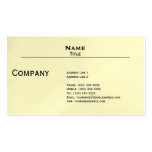Punctuality
- Professionals in India greatly value punctuality. It is essential that all business meeting participants be on time. However, it is not uncommon to wait before the meeting begins. A considerable amount of time may be spent in "small talk"; businesspeople in India use small talk as a way to assess a person's character and to determine whether they want a professional relationship with that person. In some cases, the entire initial meeting will be small talk, with no official business discussed.
Topics of Discussion
- During the time in a business meeting when participants are getting acquainted, it is best to stick to topics that help them get to know one another better. For instance, it is acceptable etiquette for a businessperson to inquire about another's marital status, or to ask whether a colleague has children. Professionals may also discuss their educational backgrounds, and whether they intend to undergo more schooling. Proper etiquette suggests avoiding topics like religion or politics. It is also not good etiquette to raise questions about the Indian caste system.
- In India, business cards are usually exchanged at the beginning of a meeting, after participants have greeted one another. The cards should always be given and received with the right hand, as the left hand is considered unclean. Since English and Hindi are the official languages of India, it is acceptable to present business cards that are worded in English.
Negotiations
- It is very important for international participants to maintain an agreeable attitude during meetings, even if the Indian party shows emotion. Being patient during a negotiation process is also very necessary, as professionals in India may take a long time when making important decisions. It is also best not to use the word "no" when negotiating, as this comes across as too harsh. The final decision in a negotiation is usually made by the most senior person involved in the business deal.
Body Language
- Unspoken communication is regarded highly in India, so international professionals should pay special attention to the implications of certain physical actions. In India, it is not appropriate to touch anyone on the head, as the head is believed to be the seat of the soul. Standing with hands on hips can give the impression of anger or aggressiveness, and should be avoided.
Meals
- Indian professionals prefer a business lunch to dinner. As most Indians are Hindu or Muslim, international hosts should keep in mind that Muslims do not eat pork and Hindus do not eat beef. Do not offer these foods during a meal. At the end of a meal that is provided by an Indian host, it is impolite to say "thank you." Thanking someone is interpreted as a form of payment in India, and an insult to the host.
______________________




 Eggshell (Textured) Business Card
Eggshell (Textured) Business Card



No comments:
Post a Comment